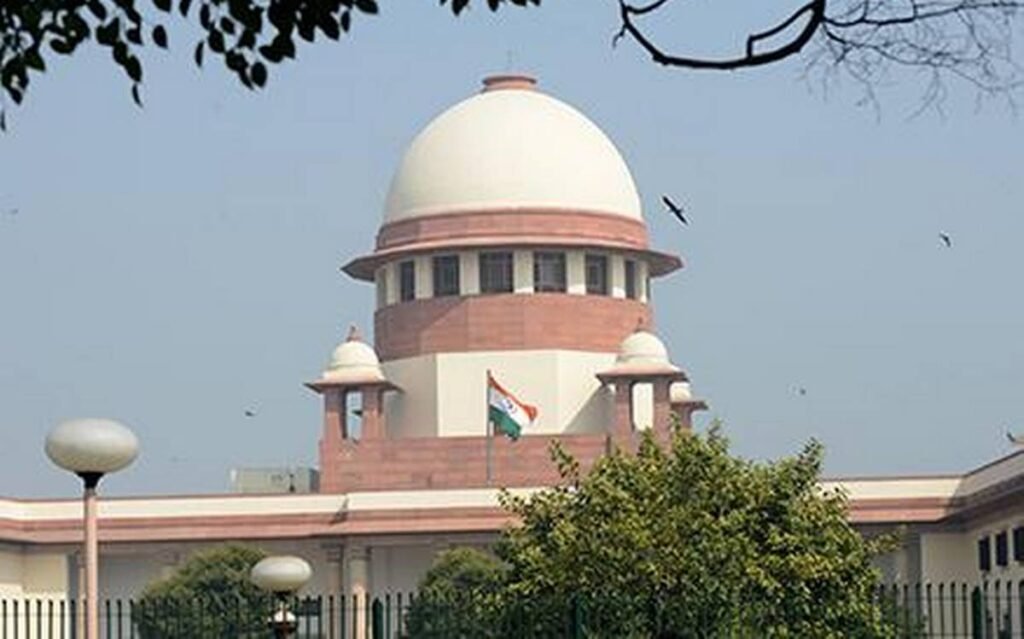Blog
July 29th Current Affairs
- July 29, 2021
- Posted by: admin
- Category: Culture Current Affairs Daily News Defense & Security Disaster Management Economy Education Environment & Ecology Ethics Geography Governance Health History International Relation Persons in News Polity Science & Technology Social Issues Sports Uncategorized UPSC Notification Videos
1. Raja Mircha.

IN NEWS:
In a major boost to exports of Geographical Indications (GI) products from the north-eastern region, a consignment of ‘Raja Mircha’ also referred as king chilli from Nagaland was exported to London via Guwahati by air for the first time.
KEY POINTS:
- The consignment of King Chilli also considered as world’s hottest based on the Scoville Heat Units (SHUs).
- The consignment was sourced from Tening, part of Peren district, Nagaland and was packed at APEDA assisted packhouse at Guwahati.
- The chilli from Nagaland is also referred as Bhoot Jolokia and Ghost pepper.
- It got GI certification in 2008.
- APEDA in collaboration with the Nagaland State Agricultural Marketing Board (NSAMB), coordinated the first export consignment of fresh King Chilli.
- APEDA had coordinated with NSAMB in sending samples for laboratory testing in June and July 2021 and the results were encouraging as it is grown organically.
- Exporting fresh King Chilli posed a challenge because of its highly perishable nature.
- Nagaland King Chilli belongs to genus Capsicum of family Solanaceae.
- Naga king chilli has been considered as the world’s hottest chilli and is constantly on the top five in the list of the world’s hottest chilies based on the SHUs.
SOURCE:PIB
2. Academic Credit Bank

IN NEWS:
On the first anniversary of the National Education Policy (NEP), the Central government shall officially roll out some initiatives promised in the policy, such as a credit transfer system that will allow multiple entry and exit options in higher education, as well as engineering programmes in regional languages.
KEY POINTS:
- However, other promised reforms such as the Higher Education Commission of India (HECI), the four-year undergraduate degree, and the common university entrance test, have been delayed due to COVID-19 pandemic.
What are the initiatives that will be rolled out?
- The Academic Bank of Credit will be rolled out for students in over 290 top institutions from the current academic year 2021-22 onwards. All institutions in the top 100 of the National Institutional Ranking Framework as well as those who have achieved an A grade under the NAAC will be allowed to participate in the credit transfer system, which will also allow multiple entry and exit options for students.
- Multidisciplinarity will be issued with guidelines to allow the merger of institutes to give students the choice of taking subjects such as social sciences, music and sports while pursuing engineering, or to get a minor degree in emerging areas while majoring in a different subject.
- Engineering degrees in regional languages in about 14 smaller institutions.
- Establishment of the National Digital Education Architecture and National Education Technology Forum.
- Vidya Pravesh, a three-month play-based school preparation module for Class 1 students which gains greater importance now since pre-schools, nurseries and anganwadis are closed due to COVID-19 pandemic.
- A competency-based assessment framework for Classes 3, 5 and 8 will also be announced for students of the CBSE.
SOURCE:TH
3. No Parliamentary Immunity for Vandalism: SC

IN News
- Recently, the Supreme Court has rejected Kerala government’s plea to withdraw criminal cases against its MLAs who were charged in the assembly.
- The ruling Kerala government had appealed, to the Supreme Court, to withdraw a criminal case against their leaders who destroyed public property and disrupted a Budget speech on the State Assembly floor in 2015.
Key Points
Arguments of the Petitioner:
- The Kerala Government had claimed parliamentary privilege, arguing that the incident occurred inside the Assembly hall.
- They had claimed immunity from criminal prosecution.
- They had argued that the prior sanction of the Speaker was necessary before the registration of an FIR by the police.
Highlights of the Judgement:
- Parliamentary Privileges are Not Gateways of Immunity: The legislators who indulge in vandalism and general mayhem cannot claim parliamentary privilege and immunity from criminal prosecution.
- Vandalism is Not Essential Legislative Action: Lawmakers possess privileges that are essential for exercising public functions.
- Vandalism and destruction inside the House are not essential for exercising legislative function.
- Vandalism and Right to Protest: Vandalism on the Assembly floor could not be equated with the right to protest by Opposition legislators.
- No member of an elected legislature can claim either a privilege or immunity to stand above the sanctions of the criminal law (Prevention of Damage to Public Property Act, 1984), which applies equally to all citizens.
- Destruction of public property could not be equated with the exercise of freedom of speech.
- Maintaining Public Trust: Legislators should act within the parameters of the public trust imposed on them to do their duty.
- They had taken office swearing true allegiance to the Constitution.
- They had to uphold the sovereignty and integrity of India and had to perform the duty imposed on them by the people who elected them.
SOURCE:TH
4. iDEX.

IN NEWS:
The Department of Defence Production which comes under the Ministry of Defence has given its approval for a central sector scheme named ‘Innovations for Defence Excellence (iDEX)’ and a Rs. 498.80 crore budgetary supports has been provided for the next 5 years starting from 2021-22 to the year 2025-26.
KEY POINTS:
- The primary aim of this scheme is to provide financial support to around 300 MSMEs, Start-ups, and individual innovators as well as around 20 partner incubators through the Defence Innovation Organisation (DIO).
Criteria to avail the grants of Support for Prototype and Research Kickstart (SPARK)
- To avail the grants of Support for Prototype and Research Kickstart (SPARK) under the mechanism of iDEX, some eligibility criteria will have to be followed.
- They are Start-ups which have been recognized and defined by Department of Industrial Policy Promotion (DIPP).
- Any Indian company which has been incorporated under the Companies Act, Micro, Small and Medium Enterprises (MSME) which have been defined in the MSME Act, 2006.
- Individual innovators (research and academic institutions) are also encouraged to apply.
Criteria for Incubators
- To avail grants as an iDEX Partner Incubator, certain eligibility criteria has to be followed.
- The applicant must be registered in India as a legal entity in private, public or PPP mode.
- They should have received grant or establishment support from a Ministry of the Government of India The incubator must have been in operation for at least 3 years and should have experience of supporting minimum 25 start-ups.
- In the past 3 years these incubators should have successfully graduated at least 5 start-ups.
- The incubators should have experience of partnering with the research and academia.
SOURCE:PIB
5. Centre launches Secured Logistics Documents Exchange

IN NEWS:
The government has launched the Secured Logistics Document Exchange. A Calculator for Green House Gas Emissions has also been launched.
KEY POINTS:
- The initiative was launched so that a digital transformation can be done in the logistics sector of the country to achieve the targets of improving the country’s ranking in Logistics Performance Index, establishment of indigenous India-specific metrics and reduction in logistics cost which will help in the improvement Of India’s logistics.
- The initiative has been launched to reduce logistics cost, improve logistics efficiency and sustainability and promote multi-modality in a big way.
- These digital initiatives have been launched by the government to fill the gaps where no action has been taken either by the government or the private players of the country.
- More than 75 participants from the Banks, Central Ministries, IT companies, industry bodies, international organizations and the logistics sector stakeholders were present during the launch event.
- The Logistics Division has planned digital initiatives with the aim of integrating various digital systems across the various departments and ministries.
SLDE platform
- SLDE platform for the digital exchange of logistics related documents and a Calculator for GHG emissions have been developed.
- The SLDE platform will look to replace the present manual process of exchange, generation and compliance of the related logistics documents with a secure, digitized and a seamless document exchange system.
- This will enable the storage, generation, and interchange of logistics-related documents digitally using Blockchain and Aadhaar based security protocols for data authentication and security.
- It will also help in lowering shipping cost and reducing carbon footprint.
SOURCE:PIB
6. Insolvency and Bankruptcy Code (Amendment) Bill 2021.

IN NEWS:
- Lok Sabha has passed the Insolvency and Bankruptcy Code (Amendment) Bill 2021.
- This Bill replaces the Insolvency and Bankruptcy Code (Amendment) Ordinance 2021 which was implemented on 4th April, 2021.
KEY POINTS:
- Insolvency is a situation where a company or an individual are unable to pay their debt.
- The government has notified that the threshold of a default which does not exceed Rs 1 crore for the initiation of a pre-packaged resolution process remains unchanged.
- On 4th April, 2021, government amended the Insolvency and Bankruptcy Code 2016 by putting forward an ordinance that provides for pre-packaged resolution process for the micro, small and medium enterprises (MSMEs) when the Parliament is not in session.
- The pre pack is merely an informal way of providing a corporate rescue plan for which approval from the National Company Law Tribunal (NCLT) will be sought.
- Under this ordinance, a pre-packaged insolvency resolution process (PIRP) was established that provides an alternate MSME insolvency resolution process.
Corporate Insolvency Resolution Process (CIRP)
- As stated in the Insolvency and Bankruptcy Code (IBC), under the existing corporate insolvency resolution process (CIRP), a maximum number of 270 days is provided for the resolution process to be completed.
- To take control of the administration a resolution professional (RP) is appointed and the promoters have to step down.
- The appointed RP then manages the resolution and bidding process, which generally takes several months.
- Under the new pre-pack scheme, the time limit for the resolution will be reduced and the participants will get 90 days to submit resolution plans and NCLT will to approve them in another 30 days
SOURCE:IE
